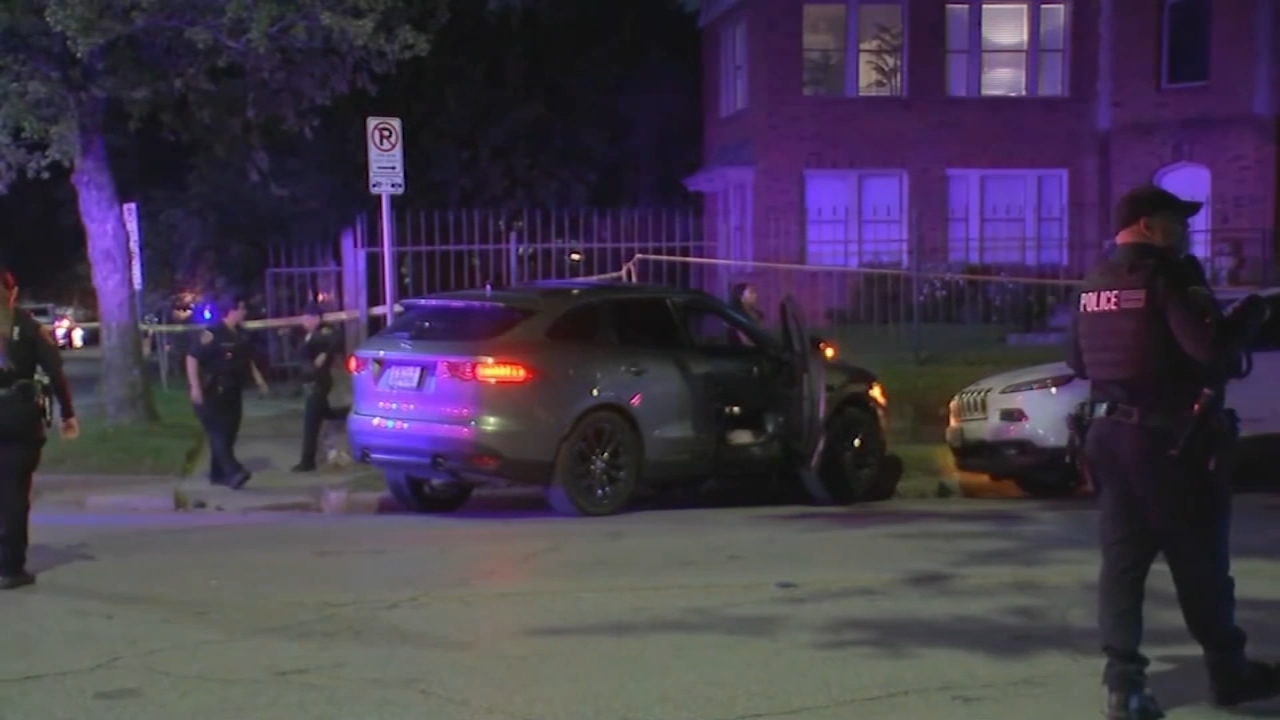13 Investigates: Parents, students give new Houston ISD system mixed grade
HOUSTON, Texas (KTRK) -- Every evening, Maria Morales said she asks her children about their day.
This year, she said she noticed her daughter growing increasingly stressed by changes at Pugh Elementary School, which is a part of the Houston Independent School District's New Education System (NES).
"I'm worried. Instead of helping them, we're going backwards. My child, both of them, are feeling some sort of pressure," Morales told 13 Investigates' Kevin Ozebek. "I don't think that this is what they need in order to be successful."
The NES model was implemented at dozens of campuses across Houston ISD this year to turn around struggling schools as part of a state takeover of the district.
Even though Pugh Elementary was an A-rated school last year, the district said its students feed into struggling middle and high schools. That's why it was included as part of NES, which requires teachers to use a new, standardized curriculum.
13 Investigates spoke with parents at two NES elementary schools, and although some of them said they welcome the more structured lessons for their children, others we spoke with said they're worried it will set their children behind.
"It's just not what I wanted for my kid in elementary school," Jessica Campos, whose daughter is a fifth grader at Pugh, said.
Duncan Klussmann, a longtime public school educator and University of Houston professor, said it is important to study the longterm impacts of NES.
"In one year, we're going to see higher state test scores. If people are using that as the gauge of success, I think people will run to the conclusion very quickly in one year, 'Oh look, this is a success. Look at their state test scores,'" Klussmann said. "But if we're going to look at the longterm, we really need to follow students through high school graduation and, really, for the next six years. What happens to students once they graduate from high school and then six years later? Do they complete a technical certificate? Do they go off to the military and have a successful experience? Do they get a two-year associates degree in four years? Do they get a four-year bachelor degree in six years? That's the longterm effect."
Brianna Gibbs, whose daughter attends kindergarten at Elmore Elementary School in northeast Houston, said she was hesitant to enroll her daughter there but wanted to give the school and the new state-appointed superintendent Mike Miles a chance.
"I was skeptical about bringing her here because I wanted her to be in a good district and stuff, but I was raised in this neighborhood so this is my neighborhood, and I'm like, 'I got to give it a chance. If nobody else is doing it, I will give it a chance,' and I like it. I don't have a bad thing about it," she said.
Gibbs said one month into the school year and she doesn't have any complaints. In fact, she said her daughter comes home excited to tell her about all the math and science she's learning.
She said as long as the district has a strong curriculum in place, she thinks it will give students a chance at success.
"They need the structure. If everything is so lenient and going, the kids are going to go throughout the year being lenient. They're not going to know structure ... and that's another year of bad performance, bad school year, bad test results, so I feel like this structure (of) education is wonderful," Gibbs said.
At Pugh Elementary, Morales' daughter, Sofia Olivo, said she doesn't like the pressure that comes with the NES structure.
Morales said the strict schedule of curriculum includes timers that keep students and teachers on swift academic deadlines.
"I feel rushed, and when I'm in the final two last questions and I just did one, I feel like I'm not doing it right and I am not doing this school year right, and it feels like I'm already behind," Sofia, who is in fourth grade at Pugh, said. "Right now, it feels like they're like, 'Hurry up, hurry up, hurry up. There's no time to waste.' Just have to do this, and that's it, and whenever I'm doing it, (I think), 'Can I please have more time?' It feels like I don't have no time. I wish that these timers don't exist."
RELATED: Parents worry A-rated school will be 'dismantled' under new HISD system
In addition to the timers, most of the teachers at Pugh are new. Since it is an NES school, all of its teachers had to re-apply for a position this school year.
Some now-former Pugh teachers told 13 Investigates that, as well as the new curriculum, turned them off from re-applying.
District records show that of the 31 teachers at Pugh, 22 of them were hired right before the start of the school year.
Sofia said she misses the old teachers that used to help her when she was struggling.
She said last year, her math teacher showed her some useful problem-solving techniques. This year, the fourth-grader said she's been struggling reading, but doesn't feel like she's getting the same support from her teachers.
"Last year was actually perfect, but now, it's not really going the same," Sofia said. "Sometimes, I feel like I'm not always good enough. I am not learning a lot."
One month into the new year, Campos said she is worried her fifth-grade daughter, who has dyslexia, is not receiving the instruction she needs to thrive at Pugh.
"I can tell you that this new curriculum is not built for my child. It's not built for children with disabilities. It's also not built for children who are emerging English speakers," Campos said. "I feel like this is going to set our kids back."
SEE ALSO: 'How degrading to a student to never be called on': Mom of elementary school child enraged by HISD
Klussman said it's important to remember that while the NES model is intended to help struggling schools, some students who were thriving in those campuses may have difficulties this year due to the changes. He said there's more to student experience than performing well on tests.
"Even the schools that were struggling, there were students in the school being successful and now for that student ... their total experience has been changed. They may want the previous experience they had," Klussman said. "For the students who weren't successful, this may be a better experience in the sense that they actually are more successful on the state test, but again, I think we need to focus on the overall student experience and that's what we need to watch longterm as we watch this implementation."
Ultimately, he said the district should know within one year if the program had the intended effect of higher state test scores, but "the jury's clearly still out" when it comes to determining the longterm success of the NES model.
He said it will take at least four to six years to know if the program was successful for high school students and 10 to 15 years for elementary school students.
"What we do know is for students to be successful after they finish K-through-12 education, they need a very balanced experience. They need to not only have the content knowledge, but they have to know how to apply that knowledge. They have to know how to work with others. They have to know how to interact with individuals who are different from their experience," Klussman said. "They have to have all these skill-sets that are way beyond just the academic skill-set of the STAAR test, and I think that's something we have to focus on again, is what is the longterm effect of the NES schools?"
For updates on this story, follow Kevin Ozebek on Facebook, Twitter and Instagram.
Contact 13 Investigates
Have a tip? A problem to solve? Send a tip below. If you don't have a photo or document to include, just hit 'skip upload' and send the details. (On mobile? You can open our form by tapping here.)









